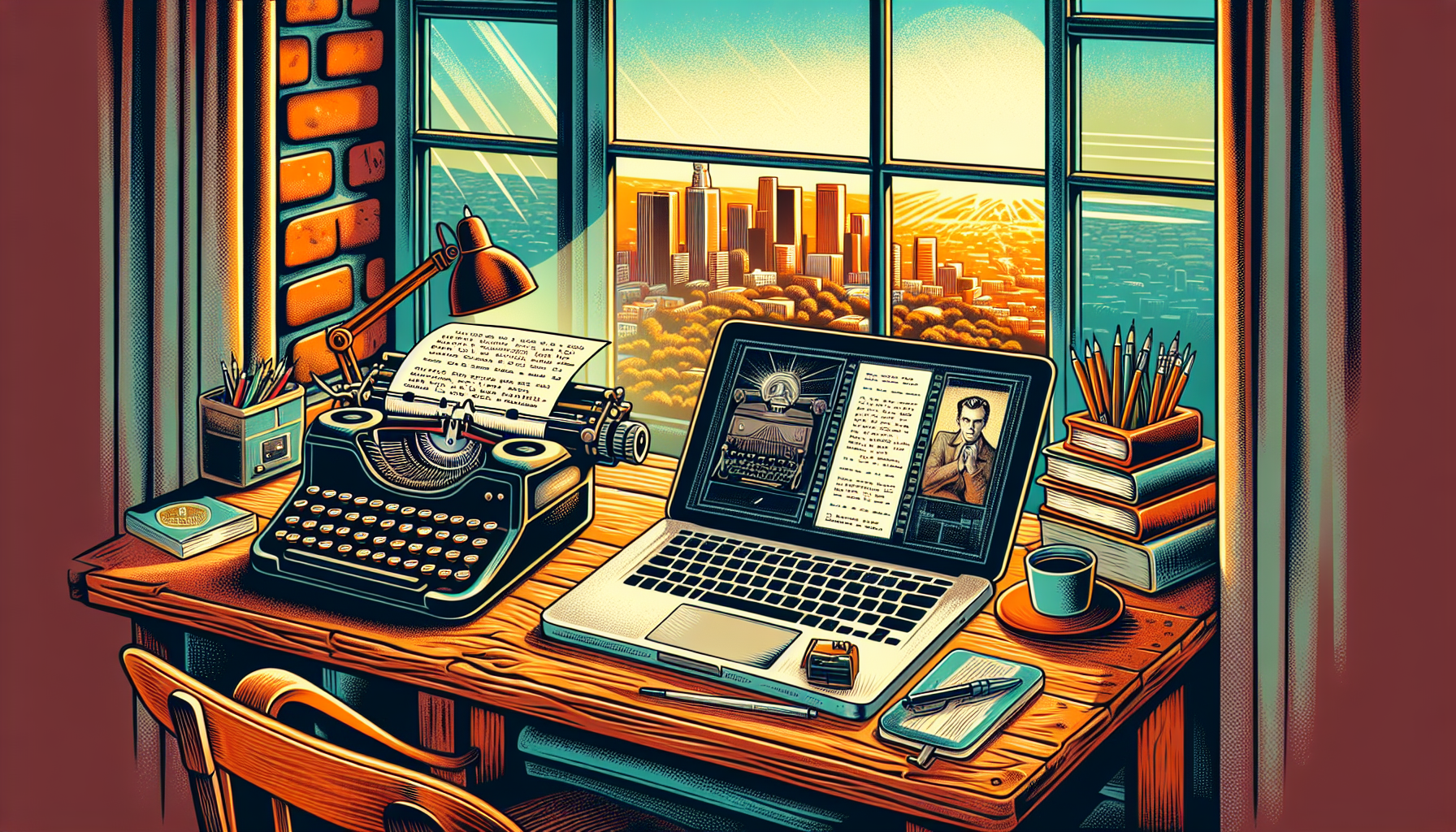
Roll Camera, Roll Words: Unleashing Your Inner Screenwriter
Greetings, you budding Tarantinos and future Spielbergs! If you’re itching to etch your thoughts onto the silver screen but feel like your writing skills are still stuck in the silent era, fear not! Enhancing your screenwriting skills isn’t as daunting as convincing a stubborn actor to nail that perfect take—it just takes some practice, creativity, and perhaps a bit of your leftover pizza-fueled midnight chutzpah. Let’s dive into the rabbit hole of screenplay wonder, shall we?
The Blueprint Bonanza: Structure, Structure, Structure!
First things first—Structure! I’m not yelling, just emphasizing. Imagine a house. Now imagine that house built out of Jenga blocks by a four-year-old. That’s your screenplay without a solid structure. A three-act structure is your new best friend. This includes the Setup, where you introduce your irresistible chaotic world and its delightful denizens; the Confrontation, filled with enough drama to make a soap opera blush; and the Resolution, where you tie up everything nicely with a bow (or set it on fire, depending on your genre).
But how do I know if my structure is more wobbly than a director on a caffeine binge? Fear not! Outline, outline, outline. Break your script down into sequences and scenes. Make sure each scene is a mini-story that drives the plot forward faster than a stunt driver in a car chase.
The Dialogue Dance: Making Words Work
Dialogue in films is like spices in cooking—too little, and it’s bland; too much, and it’s overbearing. Your characters shouldn’t sound like they swallowed a thesaurus (a common newbie mistake). They should be crisp, clear, and catchy. Remember, film is a visual medium. Show, don’t tell. Instead of having Johnny reveal he’s sad, show him throwing his cherished childhood teddy bear into a burning fireplace—a bit dramatic, but you get the point.
Here’s a trick: read your dialogue out loud, perhaps even act it out. If you find yourself gasping for air after a sentence, it’s too long. Keep it snappy, keep it real.
The Kraken of Creativity: Unleash and Tame
In the vast ocean of your imagination, summon the kraken of creativity; just ensure it doesn’t capsize your boat. Be original, but remember that all great writers are great thieves—they observe, they borrow, and they transform. Watch as many films as you can, and then watch more. Notice what you love, what you loathe, and why. Read scripts. Read bad ones. Read worse ones. Then read great ones. Notice the difference?
Play with genres, merge them, twist them, and see what fits. Romantic comedy with a sprinkle of horror? Yes, please. Let your genre cocktails be as wild and unexpected as a plot twist that not even your viewers see coming.
Beta Readers and Feedback Frenemies
Once your script is more polished than a Hollywood star’s pearly whites, it’s time to unleash it to a mob of beta readers. Look for feedback like a director looks for the perfect shot. Embrace the good, the bad, and the ugly. Constructive criticism is the screenplay writer’s elixir; drink it, learn from it, but don’t get drunk on it.
Tools of the Trade: Software and Swag
A carpenter wouldn’t use a spoon to hammer a nail, and a writer shouldn’t use…well, something equally inappropriate. Invest in a good screenwriting software—Final Draft, Celtx, or Highland 2, for starters. They help with formatting, which, in screenwriting, is nearly as important as your storyline. Poor formatting screams ‘amateur’, and not the cool, indie kind.
The Final Cut
Enhancing your screenwriting skills is an ongoing festival of highs and lows. Work relentlessly, read profusely, and rewrite even when your script feels like it’s etched in stone. With every rewrite, find comfort knowing that you’re one step closer to not just being good, but being spectacular.
Now, if this pep-talk has filled you up with enough inspirational juice to kill a dragon or at least write about one, go forth and write that script that makes cinemas quake with anticipation. Lights, camera, action—and write!






